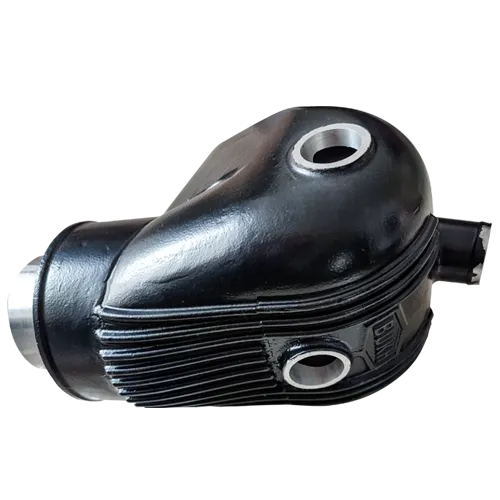Mobile:+86-311-808-126-83
Email:info@ydcastings.com
80mm End Cap for Secure and Reliable Pipe Connections and Applications
Understanding the Importance of 80mm End Caps in Industrial Applications
In the world of manufacturing and product assembly, every component plays a vital role in ensuring functionality and efficiency. One such element that often remains overlooked is the end cap—specifically, the 80mm end cap. This small yet significant part serves various purposes across multiple industries, from plumbing to electrical and beyond.
An end cap is essentially a fitting that is used to seal the end of a pipe or tube. The 80mm dimension indicates its diameter, which makes it suitable for various applications. These end caps are typically made from materials such as PVC, polypropylene, stainless steel, or other robust plastics, allowing them to withstand various environmental conditions. The choice of material largely depends on the application's requirements, including resistance to corrosion, heat, and pressure.
One of the primary uses of 80mm end caps is in plumbing systems. They are crucial in preventing leaks and ensuring that water or gas is contained within the pipes. When a pipe is cut or when a system needs to be terminated, an end cap provides a reliable means to seal the open end. This is essential not only for maintaining pressure within the system but also for ensuring safety. A leak can have disastrous consequences, which is why using high-quality end caps is of utmost importance.
In addition to plumbing, 80mm end caps find extensive applications in the electrical field
. They are often used to terminate conduits, protecting wiring from dust, moisture, and physical damage. The electrical industry requires components that meet strict safety standards, and end caps serve not only as protective barriers but also as a means of enhancing the durability of electrical installations.80mm end cap

Moreover, 80mm end caps play a crucial role in the manufacturing of furniture and fixtures. They can be used to cover the ends of metal tubing in furniture designs, providing a polished and finished look. This not only enhances aesthetic appeal but also prevents sharp edges, improving safety for users. When furniture is constructed using tubular frames, the application of end caps ensures a quality finish that aligns with modern design principles.
In industries such as packaging, 80mm end caps are utilized in the capping of containers, ensuring products remain sealed and protected during storage and transportation. This is particularly vital in food and beverage applications, where maintaining hygiene and preventing contamination are paramount. By providing an airtight seal, these end caps ensure that products retain their quality and longevity.
Furthermore, 80mm end caps can also contribute to sustainability efforts. Many manufacturers are now producing end caps from recycled materials or creating designs that facilitate easy recycling post-use. This shift towards more eco-friendly components aligns with global efforts to reduce waste and promote sustainable manufacturing practices.
In conclusion, while the 80mm end cap might seem like a minor component, its importance cannot be overstated. From plumbing and electrical applications to furniture design and packaging, these fittings play a vital role in ensuring functionality, safety, and aesthetics across various industries. As technology and materials continue to advance, the development of more innovative and sustainable end caps will likely shape future applications, further solidifying their place in industrial processes. Whether you are involved in construction, manufacturing, or product design, understanding the significance of components like the 80mm end cap can lead to better decision-making and ultimately, higher quality outcomes.
-
Why Is Choosing the Right Motor Housing Critical for Engine Performance?NewsJul.18,2025
-
Which Impeller Types Best Optimize Your Pump’s Efficiency?NewsJul.18,2025
-
Optimize Maintenance Efficiency with Durable Oil Catch SolutionsNewsJul.18,2025
-
Maximize Pump Performance with Precision-Engineered ComponentsNewsJul.18,2025
-
Elevate Industrial Flow Systems with Precision-Engineered ComponentsNewsJul.18,2025
-
Boost Durability and Functionality with Precision Power CastingsNewsJul.18,2025











